
Well, what did happen before
the big
bang?
Few schoolchildren have failed to frustrate their parents with questions
of this sort. It often starts with puzzlement over whether space "goes on
forever," or where humans came from, or how the
planet Earth formed. In the end, the line of questioning always seems to
get back to the ultimate origin of things: the big bang. "But what caused
that?"
 |
Children grow up with an intuitive sense of
cause and effect. Events in the physical world
aren't supposed to "just happen." Something makes them happen. Even when
the rabbit appears convincingly from the hat, trickery is suspected. So could
the entire universe simply pop into existence,
magically, for no actual reason at all?
This simple, schoolchild query has exercised the intellects of generations
of philosophers, scientists, and theologians.
Many have avoided it as an impenetrable
mystery. Others have tried to define it away. Most have got themselves
into an awful tangle just thinking about it.
The problem, at rock bottom, is this: If nothing happens without a cause,
then something must have caused the universe to appear. But then we
are faced with the inevitable question of what caused that something.
And so on in an infinite regress. Some people simply proclaim that God created
the universe, but children always want to know who created God, and
that line of questioning gets uncomfortably difficult.
One evasive tactic is to claim that the universe didn't have a beginning,
that it has existed for all eternity. Unfortunately, there are many scientific
reasons why this obvious idea is unsound. For starters, given an infinite
amount of time, anything that can happen will already have happened, for
if a physical process is likely to occur with a certain nonzero
probability-however small-then given an infinite amount of time the process
must occur, with probability one. By now, the universe should have
reached some sort of final state in which all possible physical processes
have run their course. Furthermore, you don't explain the existence
of the universe by asserting that it has always existed. That is rather like
saying that nobody wrote the Bible: it was. just copied from earlier versions.
Quite apart from all this, there is very good evidence that the universe
did come into existence in a big bang, about fifteen billion years
ago. The effects of that primeval explosion are clearly detectable today-in
the fact that the universe is still expanding, and is filled with an afterglow
of radiant heat.
So we are faced with the problem of what happened
beforehand to trigger the big bang. Journalists love to taunt scientists
with this question when they complain about the money being spent on science.
Actually, the answer (in my opinion) was spotted a long time ago, by one
Augustine of Hippo, a Christian saint who lived
in the fifth century. In those days before science, cosmology was a branch
of theology, and the taunt came not from journalists, but from
pagans: "What was God doing before he made the
universe?" they asked. "Busy creating Hell for the likes of you!" was the
standard reply.
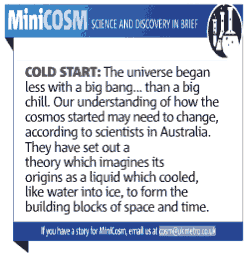
But Augustine was more subtle. The world, he claimed, was made "not in time,
but simultaneously with time." In other words, the origin of the universe-what
we now call the big bang-was not simply the sudden appearance of matter in
an eternally preexisting void, but the coming into being of time itself.
Time began with the cosmic origin. There was
no "before," no endless ocean of time for a god, or a physical process, to
wear itself out in infinite preparation.
Remarkably, modern science has arrived at more or less the same conclusion
as Augustine, based on what we now know about the nature
of space, time, and gravitation. It
was Albert Einstein who
taught us that time and space are not merely an immutable arena in which
the great cosmic drama is acted out, but are part of the cast-part of the
physical universe. As physical entities, time and space can change- suffer
distortions-as a result of gravitational processes. Gravitational theory
predicts that under the extreme conditions that prevailed in the early universe,
space and time may have been so distorted that there existed a boundary,
or "singularity," at which the distortion of space-time was infinite, and
therefore through which space and time cannot have continued. Thus, physics
predicts that time was indeed bounded in the past as Augustine claimed. It
did not stretch back for all eternity.
If the big bang was the beginning of time itself, then any discussion about
what happened before the big bang, or what caused it-in the usual sense of
physical causation-is simply meaningless. Unfortunately, many children, and
adults, too, regard this answer as disingenuous. There must be more to it
than that, they object.
Indeed there is. After all, why should time suddenly "switch on"?
What explanation can be given for such a singular event? Until recently,
it seemed that any explanation of the initial "singularity" that marked the
origin of time would have to lie beyond the scope of science. However, it
all depends on what is meant by "explanation." As I remarked, all children
have a good idea of the notion of cause and effect, and usually an explanation
of an event entails finding something that caused it. It turns out, however,
that there are physical events which do not have well-defined causes in the
manner of the everyday world. These events belong to a weird branch of scientific
inquiry called quantum physics.
Mostly, quantum events occur at the atomic level; we don't experience them
in daily life. On the scale of atoms and molecules, the usual commonsense
rules of cause and effect are suspended. The rule of law is replaced
by a sort of anarchy or chaos, and things happen
spontaneously-for no particular reason. Particles of matter may simply
pop into existence without warning, and then equally abruptly disappear again.
Or a particle in one place may suddenly materialize in another place, or
reverse its direction of motion. Again, these are real effects occurring
on an atomic scale, and they can be demonstrated experimentally.
A typical quantum process is the decay of a radioactive nucleus. If you ask
why a given nucleus decayed at one particular moment rather than some other,
there is no answer. The event "just happened" at that moment, that's all.
You cannot predict these occurrences. All you can do is give the
probability-there is a fifty-fifty chance
that a given nucleus will decay in, say, one hour. This uncertainty
is not simply a result of our ignorance of all the little forces and
influences that try to make the nucleus decay; it is inherent in nature
itself, a basic part of quantum reality.
The lesson of quantum physics is this: Something that "just happens" need
not actually violate the laws of physics. The abrupt and uncaused appearance
of something can occur within the scope of scientific law, once quantum laws
have been taken into account. Nature apparently has the capacity for genuine
spontaneity.
It is, of course, a big step from the spontaneous and uncaused appearance
of a subatomic particle-something that is routinely observed in particle
accelerators-to the spontaneous and uncaused appearance of the universe.
But the loophole is there. If, as astronomers believe, the primeval universe
was compressed to a very small size, then quantum effects must have once
been important on a cosmic scale. Even if we don't have a precise idea of
exactly what took place at the beginning, we can at least see that the
origin of the universe from nothing need not be unlawful or unnatural or
unscientific. In short, it need not have been a
supernatural event.
Inevitably, scientists will not be content to leave it
at that. We would like to flesh out the details of this profound concept.
There is even a subject devoted to it, called quantum cosmology. Two
famous quantum cosmologists, James Hartle and
Stephen Hawking, came up with a clever idea
that goes back to Einstein. Einstein not only found that space and time are
part of the physical universe; he also found that they are linked in a very
intimate way. In fact, space on its own and time on its own are no longer
properly valid concepts. Instead, we must deal with a unified
"space-time" continuum. Space has three dimensions,
and time has one, so space-time is a four-dimensional
continuum.
In spite of the space-time linkage, however, space is space and time is time
under almost all circumstances. Whatever space-time distortions gravitation
may produce, they never turn space into time or time into space. An exception
arises, though, when quantum effects are taken into account. That all-important
intrinsic uncertainty that afflicts quantum systems can be applied to space-time,
too. In this case, the uncertainty can, under special circumstances, affect
the identities of space and time. For a very, very brief duration,
it is possible for time and space to merge in identity, for time to become,
so to speak, spacelike-just another dimension of space.
The spatialization of time is not something abrupt; it is a continuous process.
Viewed in reverse as the temporalization of (one dimension of) space, it
implies that time can emerge out of space in a continuous process.
(By continuous, I mean that the timelike quality of a dimension, as opposed
to its spacelike quality, is not an all-or-nothing affair; there are shades
in between. This vague statement can be made quite precise mathematically.)
The essence of the Hartle-Hawking idea is that the big bang was not the abrupt
switching on of time at some singular first moment, but the emergence of
time from space in an ultrarapid but nevertheless continuous manner. On a
human time scale, the big bang was very much a sudden, explosive origin of
space, time, and matter. But look very, very closely at that first tiny fraction
of a second and you find that there was no precise and sudden beginning at
all. So here we have a theory of the origin of the universe that seems to
say two contradictory things: First, time did not always exist; and second,
there was no first moment of time. Such are the oddities of quantum
physics.
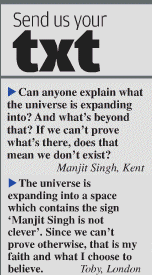
Even with these further details thrown in, many people feel cheated. They
want to ask why these weird things happened, why there is a universe, and
why this universe. Perhaps science cannot answer such questions. Science
is good at telling us how, but not so good on the why. Maybe there isn't
a why. To wonder why is very human, but perhaps there is no answer in human
terms to such deep questions of existence. Or perhaps there is, but we are
looking at the problem in the wrong way.
Well, I didn't promise to provide the answers to
life, the universe, and everything,
but I have at least given a plausible answer to the question I started out
with: What happened before the big bang?
The answer is: Nothing.
PAUL DAVIES is a theoretical physicist and professor of natural philosophy at the University of Adelaide. He has published over one hundred research papers in the fields of cosmology, gravitation, and quantum field theory, with particular emphasis on black holes and the origin of the universe. He is also interested in the nature of time, high-energy particle physics, the foundations of quantum mechanics, and the theory of complex systems. He runs a research group in quantum gravity which is currently investigating superstrings, cosmic strings, higher-dimensional black holes, and quantum cosmology. Davies is well known as an author, broadcaster, and public lecturer. He has written over twenty books, ranging from specialist textbooks to popular books for the general public. Among his better-known works are God and the New Physics; Superforce; The Cosmic Blueprint; and The Mind God. His most recent books are The Last Three Minutes and It's About Time. He was described by the Washington Times as "the best science writer on either side of the Atlantic." He likes to focus on the deep questions of existence, such as how the universe came into existence and how it will end, the nature of human consciousness, the possibility of time travel, the relationship between physics and biology, the status of the laws of physics, and the interface of science and religion.
HORIZON: What came before the big bang?
One's the big bang,one's a tiny atom |
|||
How it all began: |
TO the untrained eye, the two big images on
this page might look similar. But they're very different. The black one is an atom and the red one is the Big Bang - the moment that scientists believe created the universe. They are just two of the remarkable images on display at a new exhibition in the city. The big bang is an image of cosmic background radiation. The atom is a computer simulation of its interior. The exhibition - showing only at The Museum of Science and Industry and museums in Beijing and Shanghai - is the creation of Max Planck Society Germany a world-renowned research organisation. Youngsters can take a virtual journey to other planets, to see the sources of disease and even step inside the human brain just by walking through a tunnel. The Big Bang and the smallest particles can be viewed by walking through the 12 sections of the tunnel opened by Tomorrow's World presenter Katie Knapman, this week. |
||
Max Planck Society is sharing the sights they have seen with
the Manchester public. Images of the micro world of the body and macro world
of the cosmos are not available with-out the aid of costly and complicated
technical equipment and the exhibition reveals these unique views and previously
hidden worlds. |
|||
|
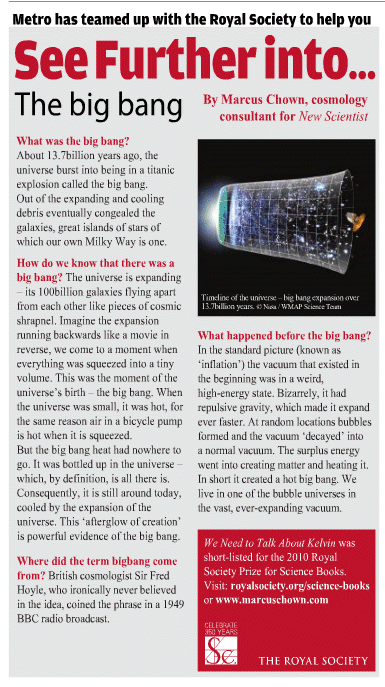 |
||||
Dome's day to be star draw
THE night sky above Manchester will never look the same again
once a new state-of-the-art planetarium opens in the city. |
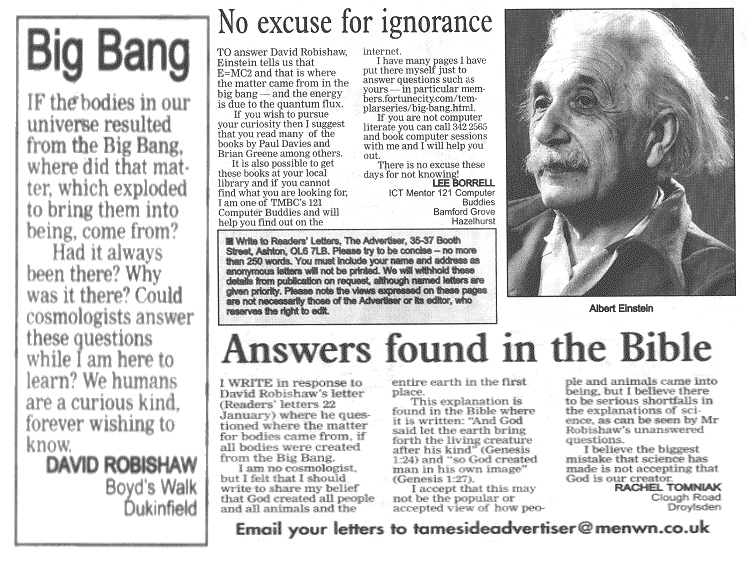 |
||
| Dear Ed,
Thankyou for printing my response to Mr Robishaw about the big-bang. Please could I extend the same invite to Rachel Tomniak who thinks science is mistaken for leaving out God,clearly, she is in need of even more help than Mr Robishaw. At least Mr Robishaw is curious about the explanation,Rachel only seems to have read one book. |
||
The Pureness of Being
Rachel
Tomniak
|
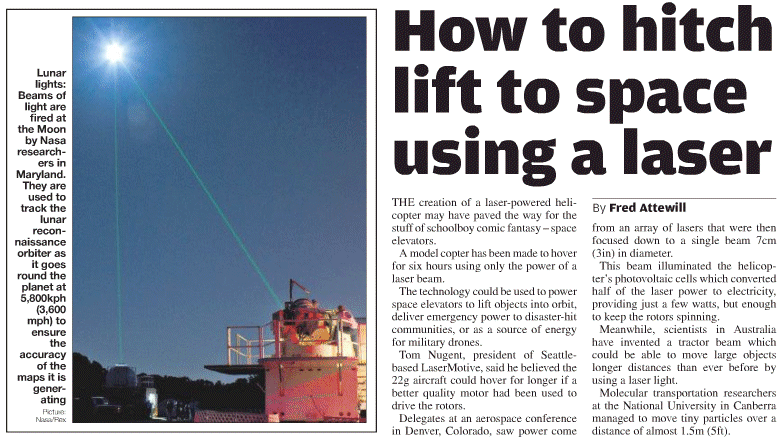
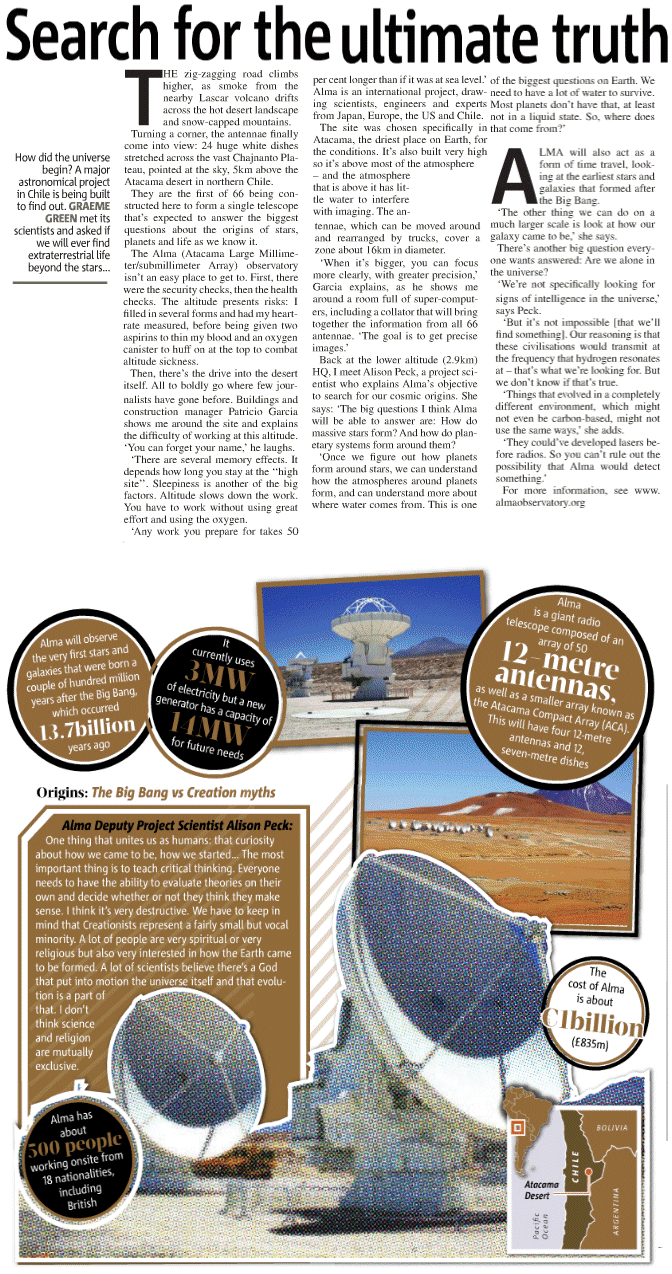
Note that I take exception to Alison's assertion that science and religion
are not mutually exclusive - they are in fact very much so. Religion
is personal faith and does not require verification by evidence. Science
very much requires verification. The two things are entirely different and
should not meet under any circumstances.The letter from Rachel Tomniak is
my evidence that they should not meet.
If you want more try
here or
here.
| What kind of bang was the big bang? | |
| Before the Big Bang | |
| Why Anything? | |
| Surprise Theory of Everything | |
| Quantum Shadows |
|
| How I knew that your article on the universe would start a flurry of
flustered first causers to write letters. Do these people not understand
that if the universe needs a first cause then so does a deity? And if he
is timeless and does not need a cause,neither does the universe?
The fact is that quantum physics allows for the universe not needing any first cause,so God is defunct. He is merely the wishful thinking of people who do not understand sub-atomic physics. If God is merely the button pusher of natural law then he isn't God. Science and religion are mutually exclusive.
|
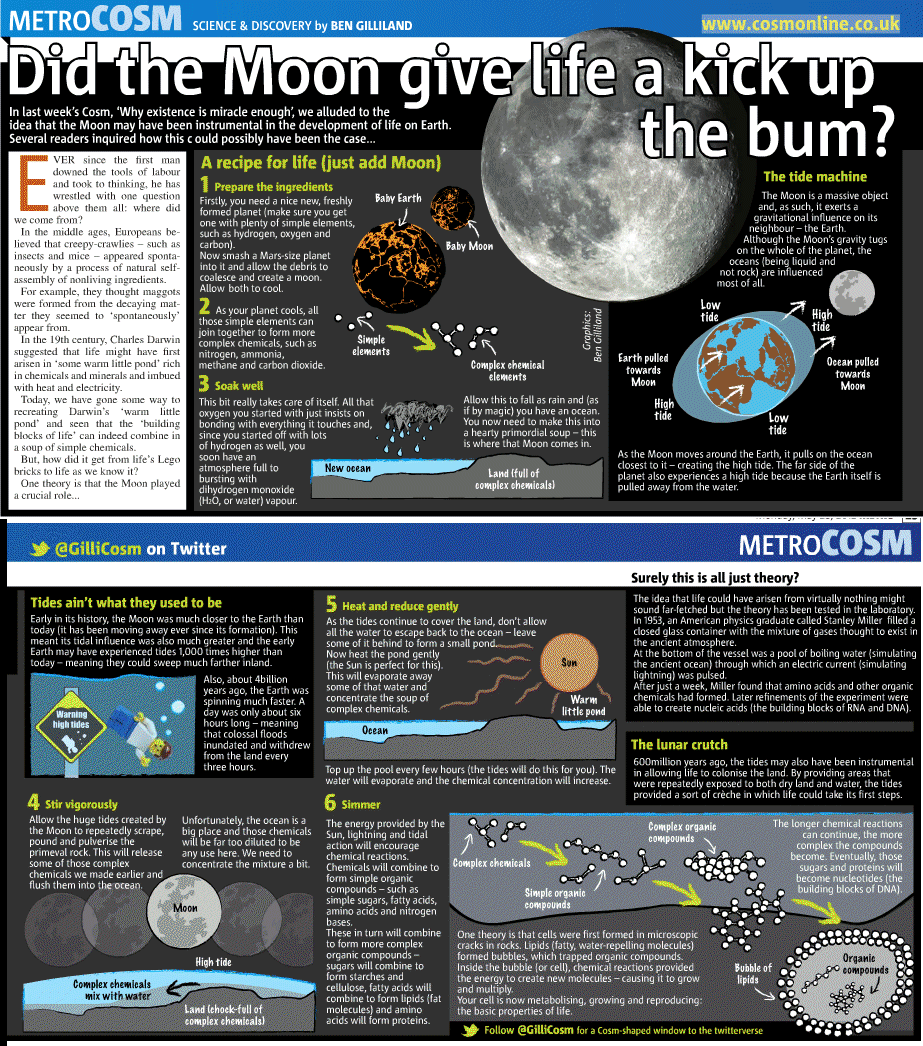
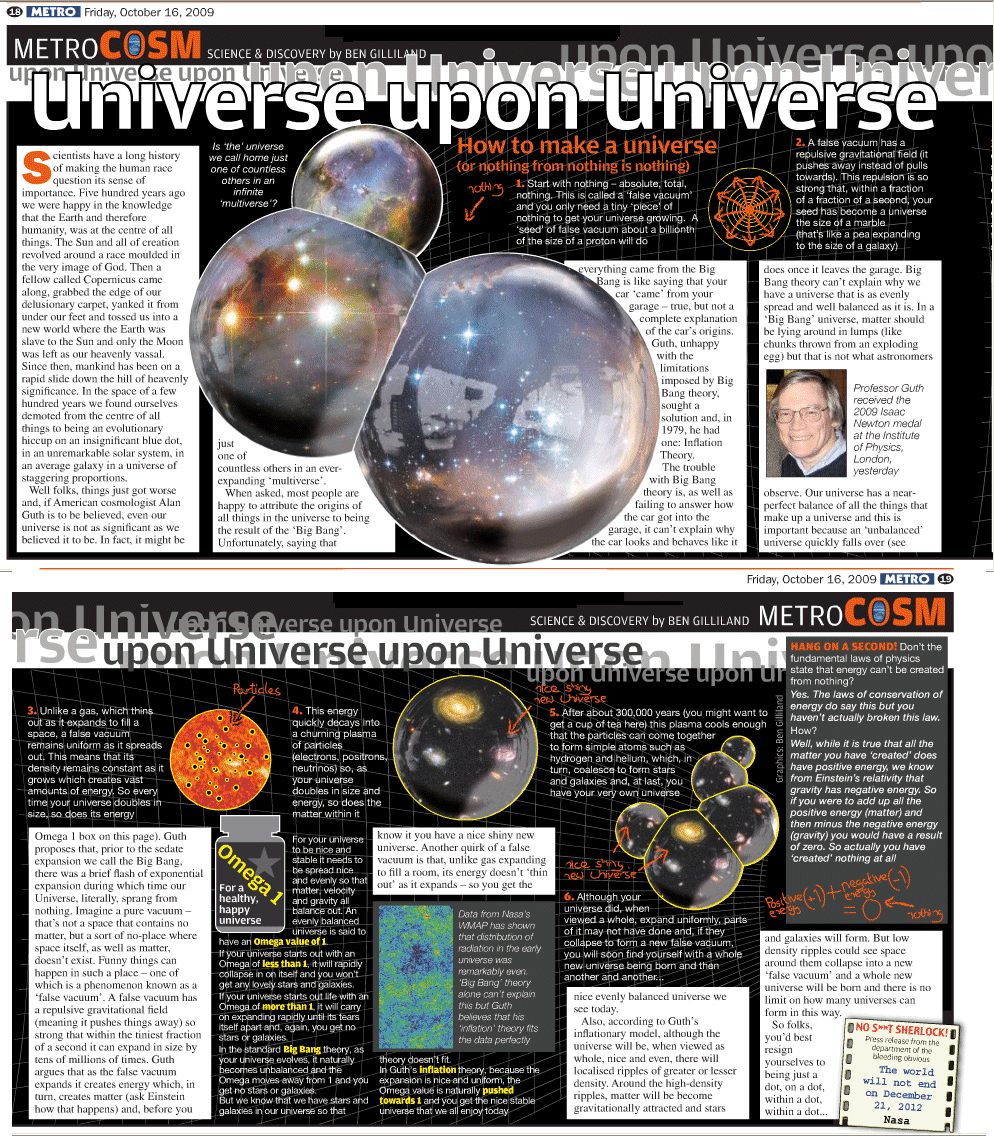
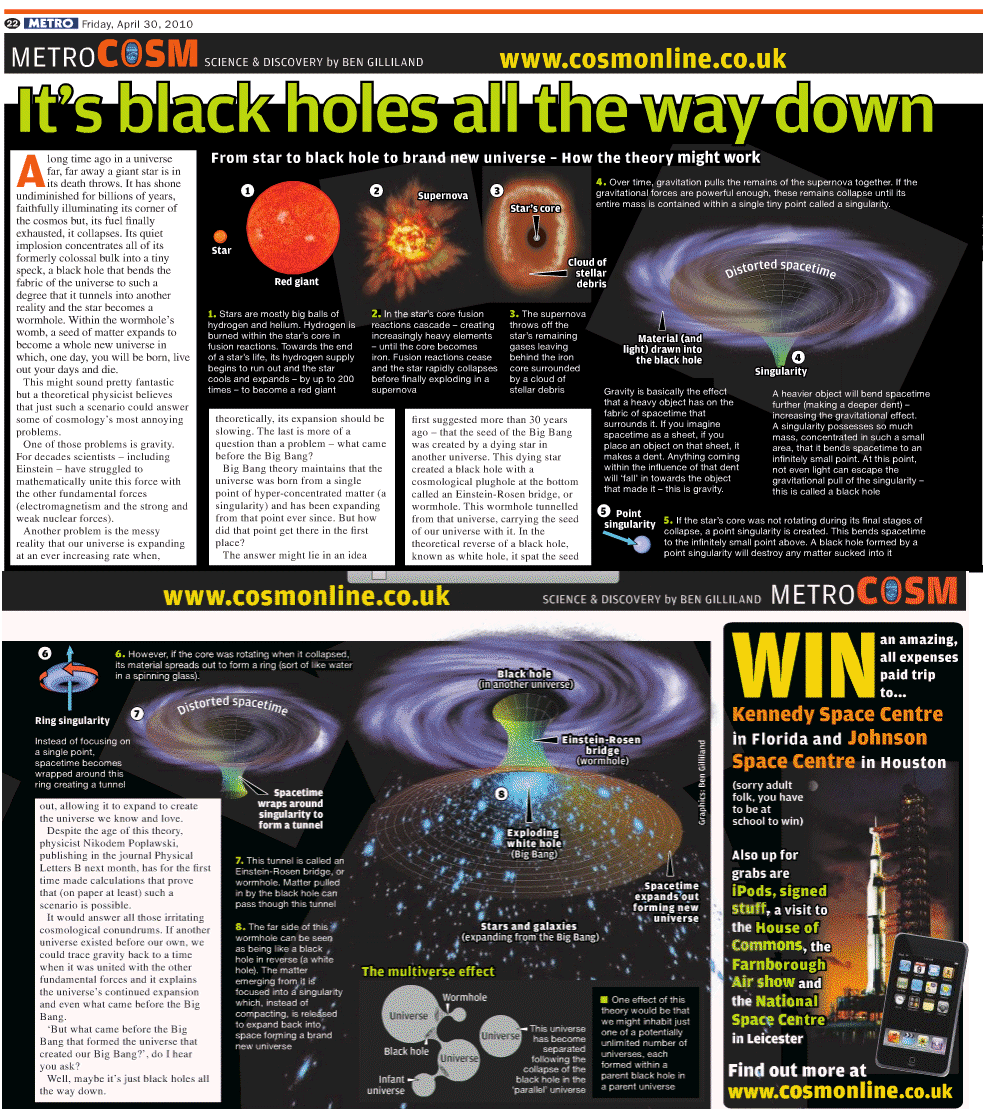
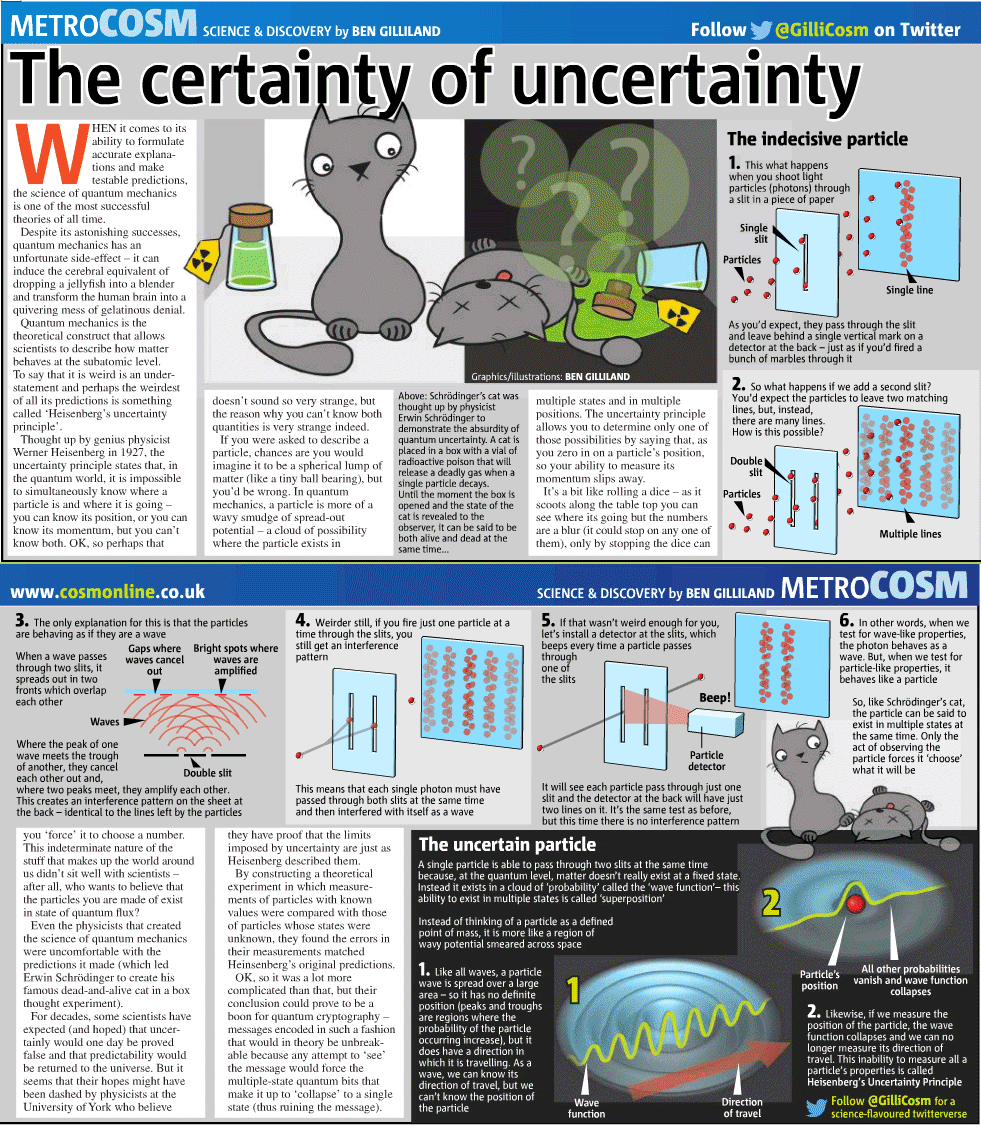
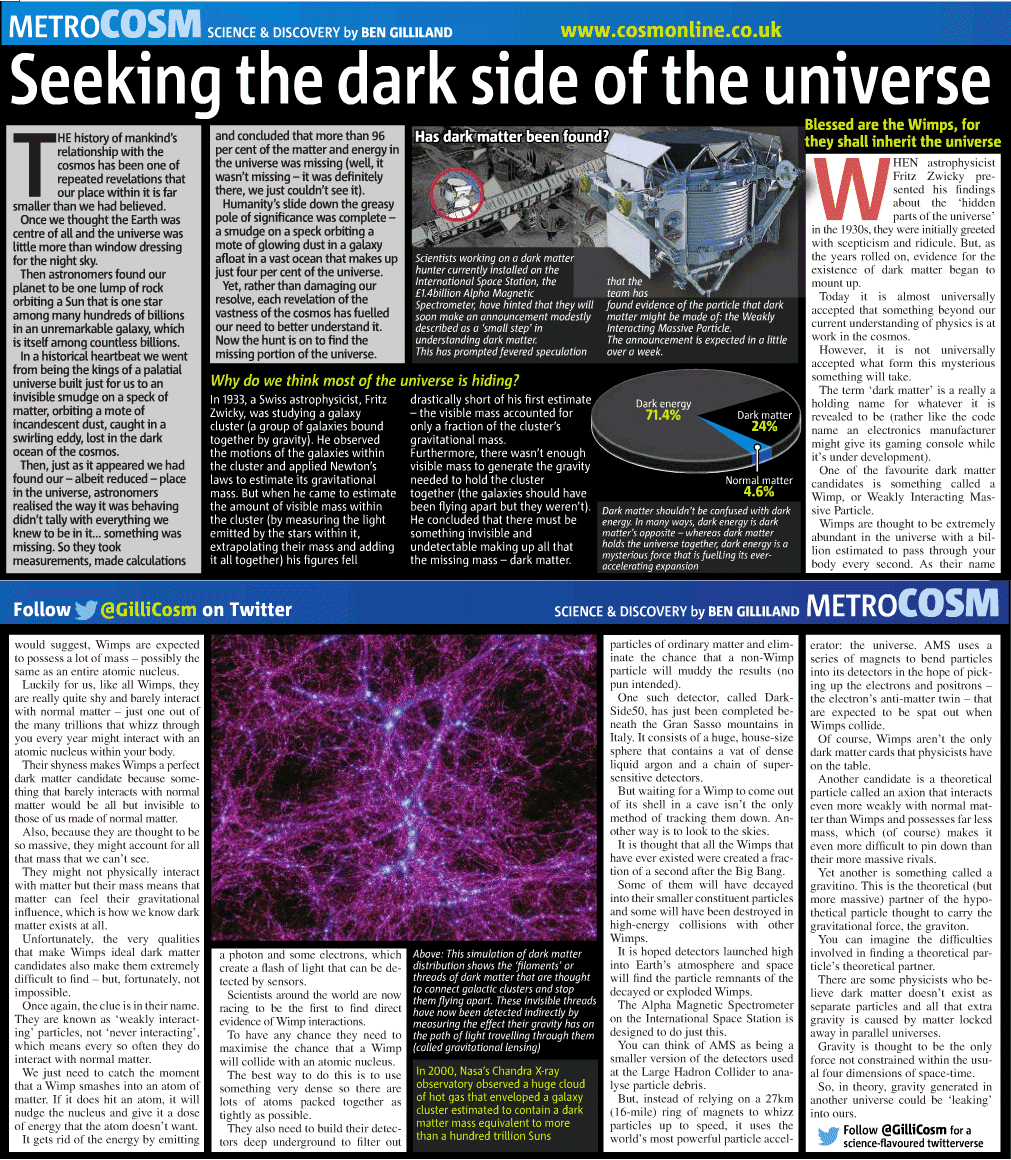
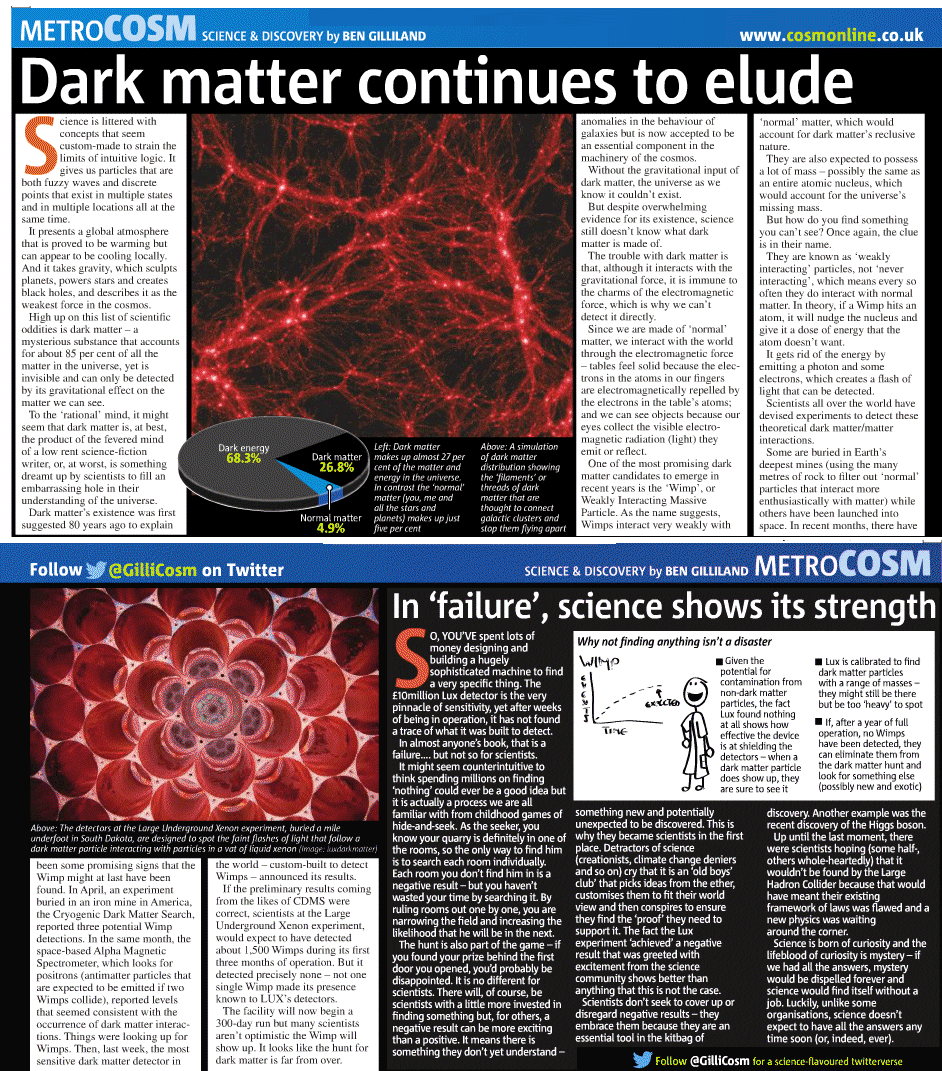
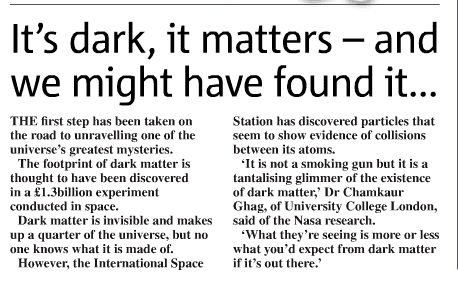
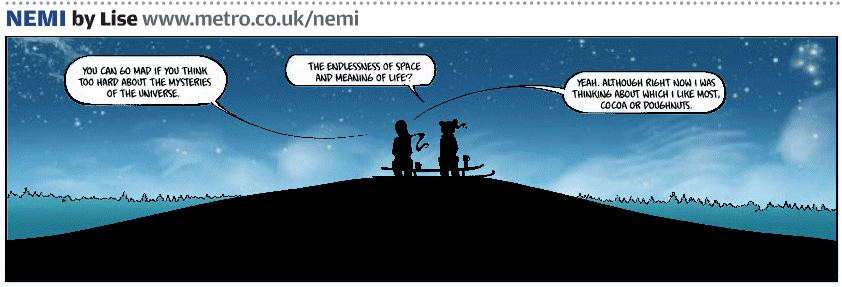
Further Reading Quanta:Big bounce simukations challenge the big bang
How Things Are: A Science Toolkit for the Mind |
| Chaos | Quantum | Logic | Cosmos | Conscious | Belief | Elect. | Art | Chem. | Maths |